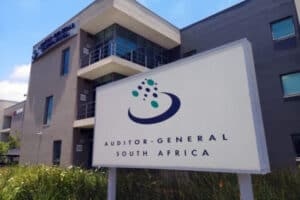Just curbing the R49bn misspent by government each year, SA could pay every social grant recipient an extra R233 a month.

Two stark sets of statistics released this week collectively encapsulate the deep crisis that our country is in.
The first, from the Institute of Race Relations (IRR), looks at social grants, the most important mechanism that the ANC government has introduced to bring relief to the poorest of the poor.
Last year was something of a tipping point, the IRR analysis shows. For the first time the number of people on welfare exceeded the number of people who have jobs.
In 2016, there were just over 17 million people getting social grants. Those grants are funded, through taxation, by the approximately 15.5 million people who had jobs.
IRR analyst Gerbrandt van Heerden is blunt: “The numbers are a recipe for social and political chaos … The government will have to cut other areas of expenditure to meet popular demands for more and higher grants. This will lead to much higher levels of violent protests.”
It is over a 15-year period that this grim trajectory is best viewed. In 2001, there were a fraction under four million people receiving grants, with 12.5 million working.
This is unsustainable. As the IRR points out, there is enormous political pressure not only to expand the rollout, but also to increase the value of existing grants. But that is impossible.
It is a dire situation that is exacerbated by the nature of President Jacob Zuma’s administration, a de facto kleptocracy. Not only is there less to steal, because of this weakening tax base, but the levels of larceny are increasing.
The second set of statistics comes from Auditor-General Kimi Makwetu’s report on 2015- 16 audit outcomes at local government level – the level at which the state can most readily intervene to improve the lives of the disadvantaged.
Makwetu notes a “marginal improvement” in the levels of mismanagement, in that expenditure in the “fruitless and wasteful” category was down by 21% and in the “unauthorised” category remained much the same, at R12.8 billion. But “irregular” expenditure, in which financial controls were flouted, was up on the previous year by a whopping 50%, to R16.8 billion. Only 49 out of 263 municipalities managed clean audits. And, according to the auditor-general, 27% of SA’s municipalities are not sustainable.
But the problem here is not one of incompetence. It is one of political will.
In the DA-governed Western Cape, 80% of municipalities received clean audits. The next best province was the ANC-run KwaZulu-Natal, with a pathetic 16% clean audit.
In Gauteng, only the DA-run Midvaal metro got a clean audit, for the third year in a row. In contrast, the three metros that the DA won in last year’s local government elections – Johannesburg, Nelson Mandela Bay and Tshwane – all racked up staggering levels of misspending, while under ANC control, of R726 million, R1.3 billion and R2.7 billion respectively.
The situation is no less alarming at provincial and national government levels. KPMG has calculated that by just curbing the R49 billion misspent by government each year, SA could pay every grant recipient an extra R233 a month.
When it comes to “radical economic transformation”, the left should worry less about White Monopoly Capital. The real issue is that the ANC should stop picking the pockets of the poor.
William Saunderson-Meyer.
Support Local Journalism
Add The Citizen as a Preferred Source on Google and follow us on Google News to see more of our trusted reporting in Google News and Top Stories.






